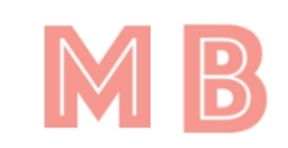July 2024: news for emerging authors
Welcome to the second instalment in this series designed to help break down a few key Bookseller headlines that I think you need to pay attention to this month. Specifically stuff that pulls back the curtain of publishing to reveal the tiny person operating all the machinery. A demystification of sorts.
So let’s jump straight into the mechanics with our first headline.
’Penguin Random House UK shows progress in ESG report but lags behind in socio-economic diversity’.
This is the first Environmental and Social Governance report of its kind by Penguin Random House and it’s significant because they are the world’s largest publisher. So, statistically speaking, you can safely assume that their low representation of socio-economic diversity amongst staff and underrepresentation of Black and Asian authors and illustrators (1.4% and 0.8%, respectively) is indicative of the wider UK publishing industry.
I share this not to dishearten you, but because I want you to engage with the industry with your eyes open. Consider entering the publishing industry much like you would when making a job application. Maybe you research the organisation? Perhaps you read the bios of the hiring panel to see where you might find allies or people to learn from? Does the organisation have structures in place to grow their staff? Are they aware of their shortfalls and looking to you to help fill the gaps? And how much time and (emotional) energy will this job require?
Asking these questions about the industry and reading the public reports will better equip you to handle what’s thrown at you once you’re in it, and help you find your own place when there are gaps in representation, ideas or creativity.
And as we’re talking about answering a need, let’s turn our attention to all the new literary festivals that popped up in July.
’East and South East Asian author festival to return in September’ / ’First romantic fiction festival held in Manchester’ / ‘SAIL Fest launches to celebrate South Asian Children’s book community’.
The people have been demanding it and some hardworking authors and publishing professionals have answered the call! And what does a bookworm love more on a summer’s day than being inside where all the books are? I know it’s not just me.
But with so many to choose from, picking which literary festival to attend can feel a bit overwhelming. So, I suggest you have a game plan if you don’t want to run out of time, money and attention.
First, decide why you’re going; is it to meet other writers? Is it to listen to your favourite author speak? Or is it to learn something new? If it’s all three, maybe you save up for that slightly bigger festival that has more places for networking and panels and workshops.
Second, are you going to get more books? The answer to this will not narrow down any choice; it’s just important to acknowledge that leaving a literary festival without a book is impossible. Some might say blasphemous. Third, if money is tight or you’re unable to attend in person, can you access the festival online? This will immediately reduce your list and you’ll be amazed at the online conversations that festivals can facilitate these days.
The point is, don’t be afraid to be picky – festival organisers want audiences to get the most out of them, and it’s OK to be honest about what you do and don’t want, even if you want everything.
And speaking of honesty, here’s our final headline, from early July.
‘Managing authors’ expectations is key during publication, M&P audience hears’.
Speaking at The Bookseller’s Marketing and Publicity Conference, industry professionals talked about being honest with new authors about the best ways to market their books, which won’t always mean a huge bookshop tour or billboard campaign (I mean, one could only hope, but it’s not the only way to sell a book). This is an important conversation to pay attention to, because once you’ve achieved the impossible and completed your manuscript and sold it to a publisher, how it gets to readers is the next big step. And this is directly affected by how well you’re able to communicate – with your publishers comms and marketing team, with your own cultivated audience if you’re online like that, and in real life when talking about your own book.
I’m not telling you to magically become an expert at book marketing, but you will need to learn how to communicate your needs honestly with whomever is marketing your book, so that when things don’t go well, you can work together, and when they do, you can celebrate!
And for those of you still working on your work in progress, it’s never too early to start practising how to talk about your work, because you can’t be an emerging author unless you actually… emerge, right?
Hope that helps you find your way through the industry just a little – more next month.
